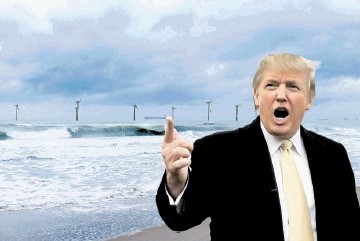
Donald Trump’s surprise victory ends months of an adversarial presidential campaign with bitter disagreements between the two major candidates across a spectrum of policy positions.
Despite one question at the end of the second presidential debate, energy policy has taken a backseat to immigration, taxation, foreign affairs and candidate suitability.
However, there are indications that the US’s new President-elect could present a more positive outcome for the hydrocarbon industry than the pre-election favourite.
Trump’s policy on energy centres around the concept of “energy independence” and the development of domestic oil, gas and coal reserves. He has pledged to “open onshore and offshore leasing on federal lands” and eliminate a moratorium on coal leasing and open-shale extraction.
In contrast, Hilary had campaigned for an expedited transition to renewable energy sources, and had targeted a reduction in domestic oil consumption by 6.5million bbl/d as a national goal, to be achieved by 2027 with tighter vehicle efficiency standards (recent automotive efficiency gains have been modest – improving 2.5 miles/gallon for new vehicles over five years) and “through cleaner fuels”.
A reduction on this scale would have approximately halved anticipated annual liquid consumption growth globally (the equivalent of 650,000 bbl/d) and would likely have become a primary factor in an extended period of depressed crude and LNG prices.
On the Keystone XL pipeline, Trump was quoted in May 2016 saying he “would absolutely approve it, 100%” but would seek to renegotiate terms. Clinton had opposed the Keystone XL pipeline, along with Artic drilling.
Furthermore, there was significant uncertainty around Clinton’s support for the lifting of the crude export ban. President-elect Trump has set out to “eliminate all barriers to responsible energy production” which suggests a freer regulatory environment.
Whilst the result is undoubtedly a blow for the renewable energy industry, the historic election result is perhaps welcome news for a hydrocarbon industry that has been on the ropes for over two years.
Recommended for you
